Pharmacology Graduate Education Enhancement Award
The Pharmacology Graduate Education Enhancement Award was initiated by contributions from Pharmacology faculty to enhance training of graduate students. The award supports students in their endeavors to learn new technologies and techniques, participate in cross-institutional collaborations, attend short courses or other endeavors complementing their training.
2015
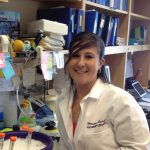
Meagan Quinlan of Randy Blakely’s lab spent two weeks at Cold Spring Harbor Laboratory in New York to receive hands-on training in Proteomics. During her time there, she took part in an intensive laboratory and lecture-based course focusing on cutting-edge proteomic approaches and technologies to gain practical experience purifying and identifying protein complexes and post-translational modifications. This complemented her current research goals, which aim to identify novel protein-protein interactions with the anti-depressant-sensitive serotonin transporter to better understand the molecular regulation of the transporter.
2014
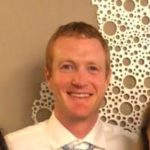 Michael D. Grannan: “The dissertation enhancement award allowed me to travel to the lab of one of our collaborators, Dr. George Rebec at Indiana University. Dr. Rebec is the Chancellor’s Professor of Psychological and Brain Sciences at IU and is an expert in the field of behavior-related neuronal processing in forebrain networks involved in both basic and complex cognitive tasks. To assess how these brain systems operate and interact under freely behaving conditions, they combine electrophysiological approaches, both single-unit recording and local field potentials, with recent analytical innovations such as coherence assessment and causality detection. These techniques are the natural next step for me in my dissertation work.
Michael D. Grannan: “The dissertation enhancement award allowed me to travel to the lab of one of our collaborators, Dr. George Rebec at Indiana University. Dr. Rebec is the Chancellor’s Professor of Psychological and Brain Sciences at IU and is an expert in the field of behavior-related neuronal processing in forebrain networks involved in both basic and complex cognitive tasks. To assess how these brain systems operate and interact under freely behaving conditions, they combine electrophysiological approaches, both single-unit recording and local field potentials, with recent analytical innovations such as coherence assessment and causality detection. These techniques are the natural next step for me in my dissertation work.
My interest in the role of M4 and the medial prefrontal cortex in the cognitive deficits of schizophrenia stems from several pieces of evidence. Previous studies have shown that individuals with schizophrenia exhibit disruptions across multiple domains of cognition, including attention, memory and cognitive flexibility, all of which require an intact medial prefrontal cortex. Additionally, anatomical studies indicate that M4 mAChRs are abundantly expressed in several key regions of the mesocorticolimbic dopaminergic circuitry, including the ventral tegmental area, nucleus accumbens, and medial prefrontal cortex. Finally, it is likely that disruptions in transmission, either changes in mesocorticolimbic dopamine neurotransmission and/or enhancement of spontaneous activity at glutamatergic synapses in the medial prefrontal cortex, underlie many of the cognitive impairments in schizophrenia. The research opportunity provided by this enrichment award will greatly help me as I continue to seek to assess the role of M4 in the neural circuitry associated with the cognitive deficits in schizophrenia.”
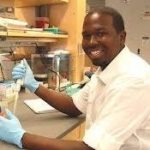 T. K. Feaster: “Heart failure is a leading cause of morbidity and mortality worldwide. Mutations in sarcomere proteins have been linked to primary cardiomyopathies such as dilated cardiomyopathy (DCM), hypertrophic cardiomyopathy (HCM), and restrictive cardiomyopathy (RCM). Presently, detailed cellular mechanisms by which mutations in different sarcomere proteins cause these divergent heart diseases are unknown. Human cardiomyocytes engineered from patient-derived induced pluripotent stem cells (iPSC-CMs) have been proposed as a new method to study pathophysiology of primary cardiomyopathies. Toward this goal, the Hong lab has identified several patients with inherited or congenital cardiomyopathies and developed a robust method to induce cardiomyogenesis in hiPSCs. One of these patients has RCM caused by a de novo mutation in TNNI3 (Arg-204 to Cys) gene, encoding cardiac Troponin I, a component of the troponin complex responsible for calcium sensing and cardiomyocyte contraction. We hypothesize that this particular TNNI3 mutation causes specific biochemical perturbations that will be manifested in iPSC-CMs through distinguishable changes in cellular phenotypes, including calcium handling, contractile force generation and electrophysiology. To test this hypothesis we propose the following specific aims involving patient-derived iPSC-CMs. First, We will determine the effects of the TNNI3 Arg-204-Cys mutation on in vitro calcium physiology (Aim 1). Next, we will determine the effects of the TNNI3 Arg-204-Cys mutation on cardiomyocyte contractility in vitro (Aim 2). Finally, I will determine whether the TNNI3 Arg-204-Cys mutation result in a proarrhythmic substrate in vitro (Aim 3). The proposed experiments will provide a better understanding of the effects of TNNI3 mutations on RCM pathophysiology and cellular function. The results we obtain will enhance our understanding of the molecular role of the TNNI3 mutation on sarcomere and cardiomyocyte function. This work will provide novel insight into human congenital heart disease and could be extended to other primary cardiomyopathies. The enhancement award funded the opportunity for me to attend the PCBC Stem Cell Training Course at Stanford in February 2014.
T. K. Feaster: “Heart failure is a leading cause of morbidity and mortality worldwide. Mutations in sarcomere proteins have been linked to primary cardiomyopathies such as dilated cardiomyopathy (DCM), hypertrophic cardiomyopathy (HCM), and restrictive cardiomyopathy (RCM). Presently, detailed cellular mechanisms by which mutations in different sarcomere proteins cause these divergent heart diseases are unknown. Human cardiomyocytes engineered from patient-derived induced pluripotent stem cells (iPSC-CMs) have been proposed as a new method to study pathophysiology of primary cardiomyopathies. Toward this goal, the Hong lab has identified several patients with inherited or congenital cardiomyopathies and developed a robust method to induce cardiomyogenesis in hiPSCs. One of these patients has RCM caused by a de novo mutation in TNNI3 (Arg-204 to Cys) gene, encoding cardiac Troponin I, a component of the troponin complex responsible for calcium sensing and cardiomyocyte contraction. We hypothesize that this particular TNNI3 mutation causes specific biochemical perturbations that will be manifested in iPSC-CMs through distinguishable changes in cellular phenotypes, including calcium handling, contractile force generation and electrophysiology. To test this hypothesis we propose the following specific aims involving patient-derived iPSC-CMs. First, We will determine the effects of the TNNI3 Arg-204-Cys mutation on in vitro calcium physiology (Aim 1). Next, we will determine the effects of the TNNI3 Arg-204-Cys mutation on cardiomyocyte contractility in vitro (Aim 2). Finally, I will determine whether the TNNI3 Arg-204-Cys mutation result in a proarrhythmic substrate in vitro (Aim 3). The proposed experiments will provide a better understanding of the effects of TNNI3 mutations on RCM pathophysiology and cellular function. The results we obtain will enhance our understanding of the molecular role of the TNNI3 mutation on sarcomere and cardiomyocyte function. This work will provide novel insight into human congenital heart disease and could be extended to other primary cardiomyopathies. The enhancement award funded the opportunity for me to attend the PCBC Stem Cell Training Course at Stanford in February 2014.
The capability of deriving iPSCs from somatic cells such as fibroblast and human peripheral blood samples is a key component of the purposed research because reprogramming and cardiac differentiation are the initial steps for each aim. Participation in the Stanford Stem Cell Training course provided me with the unique tools to reach the above aims as well as extend my stem cell biology knowledge. This training will also assist us in characterizing iPSC lines and the iPSC-CMs as well as reprogramming additional lines for appropriate controls. Further; this will be a critical skill to assist other Vanderbilt Hub researchers.”
2013
 Jing Wu: “I was funded by the Graduate Enhancement Award to attend the 8th Hypertension Summer School held by the by the American Heart Association at University of South Carolina in the summer of 2013. During the 4-day intensive training, I developed a global picture of the basic pathophysiology, clinical issues, and therapeutics of hypertension. I also had hands-on experiences in using medical technologies for research purposes. In addition, I had an opportunity to meet and interact with several world experts in hypertension and met trainees from other institutions. These experiences are not only valuable for my dissertation research but also for my career as a cardiovascular scientist.”
Jing Wu: “I was funded by the Graduate Enhancement Award to attend the 8th Hypertension Summer School held by the by the American Heart Association at University of South Carolina in the summer of 2013. During the 4-day intensive training, I developed a global picture of the basic pathophysiology, clinical issues, and therapeutics of hypertension. I also had hands-on experiences in using medical technologies for research purposes. In addition, I had an opportunity to meet and interact with several world experts in hypertension and met trainees from other institutions. These experiences are not only valuable for my dissertation research but also for my career as a cardiovascular scientist.”
Mai-T u: “I was fortunate to receive the Graduate Education Enhancement Award from the Pharmacology Department to attend the Integrative and Organ Systems Pharmacology short course at Michigan State University from June 3-15, 2012. This opportunity contributed tremendously to my education and training as a Ph.D. candidate. The course allowed one-on-one interaction between trainees and mentors in a wide range of disciplines, including physiology, toxicology, oncology, and behavioral studies. There were 10 different lab exercises. Additionally, I was able to learn the one technique called “Celiac Ganglionectomy” from Dr. Greg Fink’s lab, which was outside the program the course offered. This technique has helped me directly in completing sub-aim 2 in my dissertation project. Moreover, the networking relationships that I was able to establish with the faculty and peers during that time were very valuable. This award has provided opportunities not only for my scientific growth and development but also for my lab’s enhancement of productivity and research quality.”
u: “I was fortunate to receive the Graduate Education Enhancement Award from the Pharmacology Department to attend the Integrative and Organ Systems Pharmacology short course at Michigan State University from June 3-15, 2012. This opportunity contributed tremendously to my education and training as a Ph.D. candidate. The course allowed one-on-one interaction between trainees and mentors in a wide range of disciplines, including physiology, toxicology, oncology, and behavioral studies. There were 10 different lab exercises. Additionally, I was able to learn the one technique called “Celiac Ganglionectomy” from Dr. Greg Fink’s lab, which was outside the program the course offered. This technique has helped me directly in completing sub-aim 2 in my dissertation project. Moreover, the networking relationships that I was able to establish with the faculty and peers during that time were very valuable. This award has provided opportunities not only for my scientific growth and development but also for my lab’s enhancement of productivity and research quality.”
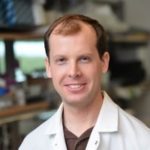 Ryan Ceddia: “The Graduate Education Enhancement Award allowed me to attend the Experimental Biology meeting in Boston in April 2013, where I received the ASPET Integrative Research In Pharmacology Award. The 14,000 in attendance represented the fields of anatomy, physiology, pathology, biochemistry, nutrition, and pharmacology. Attending the numerous talks and poster sessions provided me the opportunity to learn about the most cutting-edge research in a variety of fields. Interacting with these scientists helped me generate new ideas for my current research project. By sharing my research with other scientists in my field I was able to get a lot of helpful feedback about my project. The Experimental Biology meeting was an excellent opportunity for me to meet and interact with top-notch scientists. I made new contacts with other scientists who are working at a wide variety of institutions. Networking with these professionals will be a great benefit to my research and future career.”
Ryan Ceddia: “The Graduate Education Enhancement Award allowed me to attend the Experimental Biology meeting in Boston in April 2013, where I received the ASPET Integrative Research In Pharmacology Award. The 14,000 in attendance represented the fields of anatomy, physiology, pathology, biochemistry, nutrition, and pharmacology. Attending the numerous talks and poster sessions provided me the opportunity to learn about the most cutting-edge research in a variety of fields. Interacting with these scientists helped me generate new ideas for my current research project. By sharing my research with other scientists in my field I was able to get a lot of helpful feedback about my project. The Experimental Biology meeting was an excellent opportunity for me to meet and interact with top-notch scientists. I made new contacts with other scientists who are working at a wide variety of institutions. Networking with these professionals will be a great benefit to my research and future career.”
2012
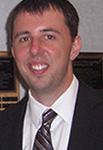 Guy Watkins: “The training I received in the Pharmacology Department was invaluable for my development as a scientist. The unique curriculum combined with the department-sponsored lectures and seminars exposed me to a wide variety of scientific topics. These opportunities not only helped me to identify my scientific interest in neuroscience but aided me in my dissertation project, under the guidance Brian Wadzinski, in which we identified a novel regulatory mechanism for protein phosphatase 2A that is altered in Alzheimer’s disease. The training I received in Pharmacology led me to pursue positions in the Alzheimer’s disease field, and I am currently a postdoctoral fellow in SangramSisodia’s laboratory at the University of Chicago studying the role of nicastrin in the γ-secretase complex. The strong mentoring along with the exposure to a wide variety of scientific fields that the Pharmacology Training Program provides has given me the tools that I need to excel in my current position as well as in future endeavors.”
Guy Watkins: “The training I received in the Pharmacology Department was invaluable for my development as a scientist. The unique curriculum combined with the department-sponsored lectures and seminars exposed me to a wide variety of scientific topics. These opportunities not only helped me to identify my scientific interest in neuroscience but aided me in my dissertation project, under the guidance Brian Wadzinski, in which we identified a novel regulatory mechanism for protein phosphatase 2A that is altered in Alzheimer’s disease. The training I received in Pharmacology led me to pursue positions in the Alzheimer’s disease field, and I am currently a postdoctoral fellow in SangramSisodia’s laboratory at the University of Chicago studying the role of nicastrin in the γ-secretase complex. The strong mentoring along with the exposure to a wide variety of scientific fields that the Pharmacology Training Program provides has given me the tools that I need to excel in my current position as well as in future endeavors.”
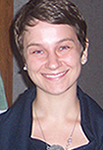 Whitney Cleghorn: “When joining the Department of Pharmacology, I was given at least two guarantees. One, that the highest quality of education in Pharmacology would be available to me. And two, I would be surrounded by mentors whose encouragement and support allowed me to make the best of this education. Not only was I taught through rigorous coursework to think in ways that bettered my research, but how to eloquently communicate my ideas and work to others both inside and outside of the field. The Pharmacology department is notorious for being a challenge, but with each fulfilled experiment, course, exam and presentation I gained more of a voice, more confidence, more patience and more persistence. I learned that with every challenge lies opportunity. Now as a postdoctoral fellow in biochemistry at the University of Washington, I continually find myself wanting to thank the department for these gifts as they enable me to move forward in my goals. It was the push by my mentor, Seva Gurevich, backed by the department that allowed me to think like a scientist. And it is something I will carry with me into my career”.
Whitney Cleghorn: “When joining the Department of Pharmacology, I was given at least two guarantees. One, that the highest quality of education in Pharmacology would be available to me. And two, I would be surrounded by mentors whose encouragement and support allowed me to make the best of this education. Not only was I taught through rigorous coursework to think in ways that bettered my research, but how to eloquently communicate my ideas and work to others both inside and outside of the field. The Pharmacology department is notorious for being a challenge, but with each fulfilled experiment, course, exam and presentation I gained more of a voice, more confidence, more patience and more persistence. I learned that with every challenge lies opportunity. Now as a postdoctoral fellow in biochemistry at the University of Washington, I continually find myself wanting to thank the department for these gifts as they enable me to move forward in my goals. It was the push by my mentor, Seva Gurevich, backed by the department that allowed me to think like a scientist. And it is something I will carry with me into my career”.
2011
 Sydney Stoops: This past summer I participated in the Summer Institute for Entrepreneurship (SIE) at Stanford University’s Graduate School of Business. SIE is a four-week business program which examines the process of turning an innovative idea into a successful venture through a combination of lectures, guest speakers and workshops. I was part of a five-member team that developed a business model and twenty-minute ‘pitch’ for local initial investors and venture capitalists. Through the classes and workshops, we were able to identify our markets, develop a business model with key technical and financial milestones, and address the possible avenues for partnering, distribution and alternative use. Great friends and connections were made, providing an excellent foundation upon which to pursue my career.
Sydney Stoops: This past summer I participated in the Summer Institute for Entrepreneurship (SIE) at Stanford University’s Graduate School of Business. SIE is a four-week business program which examines the process of turning an innovative idea into a successful venture through a combination of lectures, guest speakers and workshops. I was part of a five-member team that developed a business model and twenty-minute ‘pitch’ for local initial investors and venture capitalists. Through the classes and workshops, we were able to identify our markets, develop a business model with key technical and financial milestones, and address the possible avenues for partnering, distribution and alternative use. Great friends and connections were made, providing an excellent foundation upon which to pursue my career.
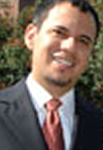 Efrain Garcia: The mentorship and support that graduate students receive from the Department of Pharmacology is unmatched by other universities in quality and scope. I often talk with other ‘Pharm’ alumni about the remarkable influence that getting a degree from the Department of Pharmacology at Vanderbilt has made in our lives. Pharm 100 ensures that future generations of Pharmacology students experience the opportunities that we were given. That is why I support the Department of Pharmacology, and I hope you join me in saying thank you by making a donation to Pharm 100.Because of their encouragement to pursue my goals, I was able to follow a path that would have seemed ‘unconventional’ in the past. My mentor, Elaine Sanders-Bush, and faculty in the department, provided incredible guidance and opportunities that allowed me to achieve my goal of becoming an AAAS Science and Technology Policy Fellow. In addition to the classroom and laboratory education I received, my real world experiences such as Pharmacology Advocacy Program with Dr. Hamm in which I presented the importance of biomedical research to Jim Cooper (D-TN), and my visit to Congress Dr. with Joey Barnett provided a foundation that put me ahead of my peers once I had completed the program. Thanks to that foundation, I currently work for the U.S. Government managing programs to develop vaccines and drugs for Biological Threat Agents.
Efrain Garcia: The mentorship and support that graduate students receive from the Department of Pharmacology is unmatched by other universities in quality and scope. I often talk with other ‘Pharm’ alumni about the remarkable influence that getting a degree from the Department of Pharmacology at Vanderbilt has made in our lives. Pharm 100 ensures that future generations of Pharmacology students experience the opportunities that we were given. That is why I support the Department of Pharmacology, and I hope you join me in saying thank you by making a donation to Pharm 100.Because of their encouragement to pursue my goals, I was able to follow a path that would have seemed ‘unconventional’ in the past. My mentor, Elaine Sanders-Bush, and faculty in the department, provided incredible guidance and opportunities that allowed me to achieve my goal of becoming an AAAS Science and Technology Policy Fellow. In addition to the classroom and laboratory education I received, my real world experiences such as Pharmacology Advocacy Program with Dr. Hamm in which I presented the importance of biomedical research to Jim Cooper (D-TN), and my visit to Congress Dr. with Joey Barnett provided a foundation that put me ahead of my peers once I had completed the program. Thanks to that foundation, I currently work for the U.S. Government managing programs to develop vaccines and drugs for Biological Threat Agents.
2010
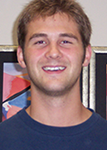 Josh Barnett: I attended the Michigan State University integrative and organ systems pharmacology short course. Being awarded the Pharmacology Dissertation Enhancement Award to attend this course allowed me to further integrate my interests in disease treatment through the field of pharmacology with my interests in biomedical engineering and material science. This combination will facilitate me in maximally using my education to develop new methods and techniques to further the pharmacological knowledge and treatments in the field of visual sciences and potentially others. I also believe that this award will benefit my laboratory as a whole, providing technical knowledge that will enhance productivity and contributions to the vision sciences community.
Josh Barnett: I attended the Michigan State University integrative and organ systems pharmacology short course. Being awarded the Pharmacology Dissertation Enhancement Award to attend this course allowed me to further integrate my interests in disease treatment through the field of pharmacology with my interests in biomedical engineering and material science. This combination will facilitate me in maximally using my education to develop new methods and techniques to further the pharmacological knowledge and treatments in the field of visual sciences and potentially others. I also believe that this award will benefit my laboratory as a whole, providing technical knowledge that will enhance productivity and contributions to the vision sciences community.
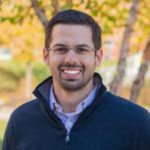 Tim Panosian: I received funding to attend the AAAS Forum on Science and Technology Policy in Washington DC during May 2009. I have had a burgeoning interest in pursuing a career in science policy, and this was my first direct experience interacting with policymakers in Washington DC and was an excellent experience. The event was a unique opportunity for me to network with other students, recent graduates and established science policymakers that will be invaluable as I pursue my career.
Tim Panosian: I received funding to attend the AAAS Forum on Science and Technology Policy in Washington DC during May 2009. I have had a burgeoning interest in pursuing a career in science policy, and this was my first direct experience interacting with policymakers in Washington DC and was an excellent experience. The event was a unique opportunity for me to network with other students, recent graduates and established science policymakers that will be invaluable as I pursue my career.
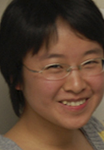 Yuxiang Zheng: I applied to the Enhancement Award for travel money to visit Florida State University to perform EPR experiments with Betty Gaffney. Through this collaboration, I will learn iron EPR technology and develop the skills to better achieve my project goal. My thesis project focuses on an unusual lipoxygenase (LOX), human epidermal lipoxygenase 3 (eLOX3), which has been implicated in human epidermal differentiation. Unlike typical LOX, eLOX3 has no activity with typical polyunsaturated fatty acid substrates. One aim of my project is to answer the simple question: Why is eLOX3 different from typical LOX?
Yuxiang Zheng: I applied to the Enhancement Award for travel money to visit Florida State University to perform EPR experiments with Betty Gaffney. Through this collaboration, I will learn iron EPR technology and develop the skills to better achieve my project goal. My thesis project focuses on an unusual lipoxygenase (LOX), human epidermal lipoxygenase 3 (eLOX3), which has been implicated in human epidermal differentiation. Unlike typical LOX, eLOX3 has no activity with typical polyunsaturated fatty acid substrates. One aim of my project is to answer the simple question: Why is eLOX3 different from typical LOX?